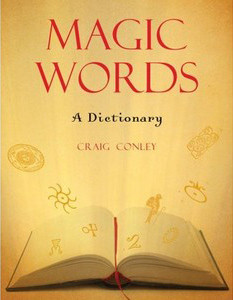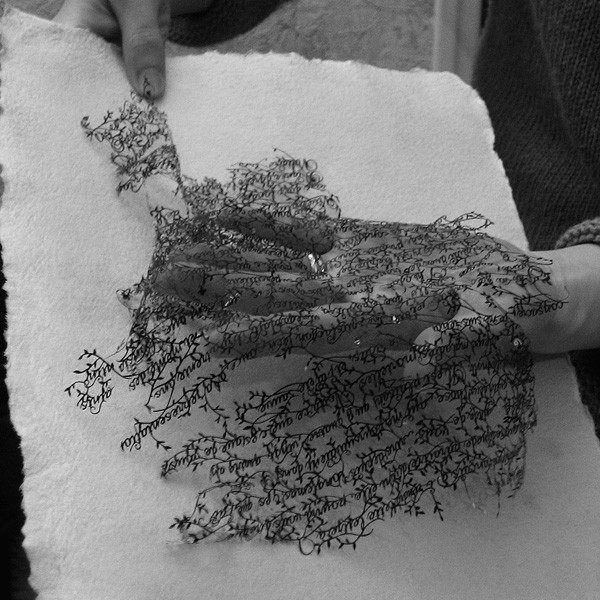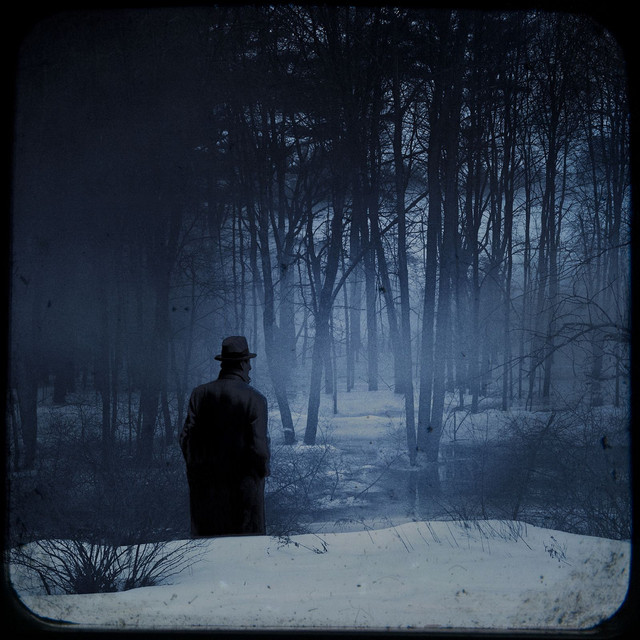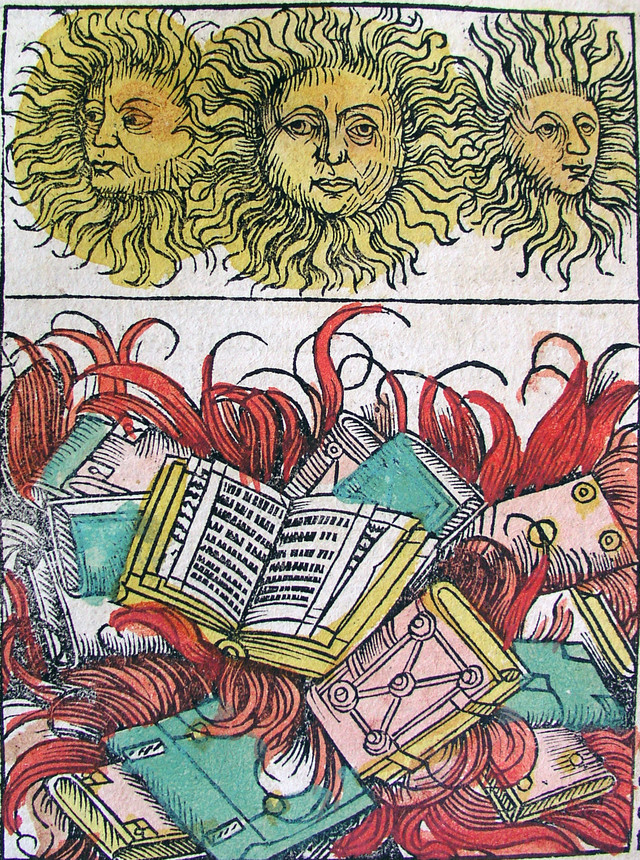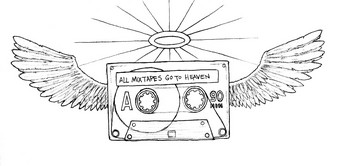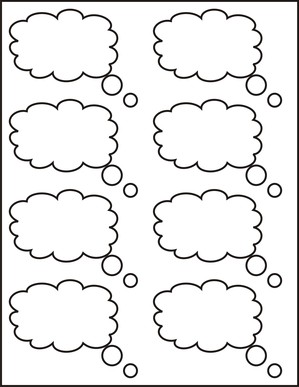The author of
A Surrealist Dictionary [no longer online but archived by the WaybackMachine] once explained to us that "Words have begun to make up their own meanings, simply because they desire to be free and live their own lives, outside of normal human convention and assigned stereotypes." Here is a selection from the now-vanished dictionary:
AARDVARK: The long, intricately shaped glass tube used in the distillation of a widow's veil.ABBREVIATE: An opiate derivative of tears.
ABLUTION: A rainbow reassembled inside a nightgown and used for starting fires.
AFTERBIRTH: A spark-yielding mist.
APHRODISIAC: Light given off between carnivorous plants as a form of communication.
AURA: A very dangerous species of moth attracted to human blood.
AURORA: Nocturnal animal similar to a jellyfish and noted for its high-pitched screams.
BICYCLIST: One of several long, white-haired creatures resembling Llamas that emit cooing, voice-like sounds.
BODICE: A prism used only in the dark as a weapon, and closely resembling a hunting knife.
BOAR: A vessel used for transporting reflections.
BREATH: Spoons repulsed by the geraniums.
CABAL: A very fast vehicle powered by cocoons.
CHAOS: A fleshy, succulant fruit - the seeds of which are often used as umbrellas.
CORMORANT: Chemical found in the human body during moments of contentment.
CORONA: A wind-powered honeycomb.
CORPSE: A luminous green flower that reflects the moon.
CUNNILINGUS: The sudden metamorphosis of a chair into a great bird.
DANCE: An invisible doorway in a wall to which sleepwalkers are invariably drawn.
DESIRE: The glow of bathing lunatics.
DIAMOND: Nocturnal animal similar to a jellyfish, but much larger and more ferocious.
DIVINING ROD: A dangerous device used to attract stars for digestive purposes.
DREAM: A dress to which the eyes of bicyclists are attached; robe worn by messengers.
EEL: The corners of a room where the walls meet the ceiling to form an escape route.
ELEVATOR: A soft, spongy mass that consumes its weight in gold.
EROS: A species of hunting dog with bright red feathers.
ESTROGEN: Wishbone used for rearranging constellations.
ETHER: Female reproductive organ.
FACULA: A large net used to catch enchanted stockings.
FEMALE: One of several species of fur-covered tripods used for stimulating rubies.
FLAME: A violin powered by the eyelids of sleeping girls.
FOETUS: Form of hysteria contracted while moving around in a solar eclipse.
GLANCE: A bitter tasting fungus often used for catching shadows.
GOWN: A joyful humming sound given off by spider webs during electrical storms.
GRACE: The art of luring ravenous dogs into a state of springtime.
GYROSCOPE: Human female milk-producing gland.
HEMOPHILIA: A very sweet herbal drug that causes spontaneous, undirected human flight.
HONEY: A sexual perversion involving a dolphin and a pharmaceutical cabinet.
HOCUS POCUS: The buzzing sound that characterizes a flaw in the universe.
HYPNOSIS: Music produced when a chrysalis and a flame exchange places.
INCENDIARY: An obscene gesture or position with intent to elude color by emitting an inky, jet black substance.
INCEST: A psychology of the body based on the oysters of space travel.
ISOSCELES: Insects that gather to form a doorway in a tropical forest.
LACONIC: A vanishing cream.
LOOM: A golden dust used for hypnotizing wolves.
LUNATION: The sound of tongues caressing before eating fowl.
MASOCHISM: Sparks given off by oyster-beds when the tides come in.
MENSTRUATION: The sound produced when rubbing two swans together.
MIRROR: The stillness preceding a flash-fire that never arrives.
NEGLIGEE: A fly-swatter similar to a bee's nest and used to fend off an attack of pianos.
NEBULA: A psychological condition in which the very essence of one's being feels constructed of sound rather than flesh and bone.
PLEASURE: A sundial that uses the wings of bats to attract forests.
SADISM: Moments during the vernal equinox when sunlight turns into honey.
SEX: A small white furry animal that attracts windows.
SHADOW: A hairless mammal that generates rainbows instead of saliva.
SOMNAMBULISM: A cleaning solution.
SOLACE: A large triangular oven in which fighting wolves surpass the speed of light.
SOLSTICE: The luminous blue fog surrounding a human body when the mind is elsewhere.
STARLIGHT: Liquid used to power a whispering machine.
SWIMMING POOL: A kind of mist secreted by pyramids when fending off an attack of vicious glow-worms.
VESTAL: Bright yellow flowers that grow out of mummies.
VULVA: Wind chimes that use the bones of children.
WHORE: Apparatus for telling the future; similar to a tuning-fork.
X-RAY: A sewing machine that uses sparks instead of thread.
YAWN: A species of seagoing plant.
YGGDRASIL: A golden frog that howls during the full moon.
ZOMBI: A glass slipper.



